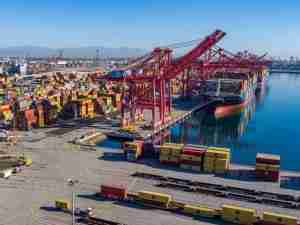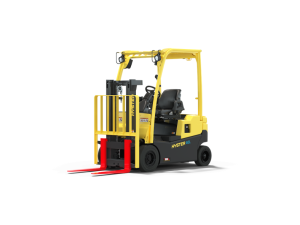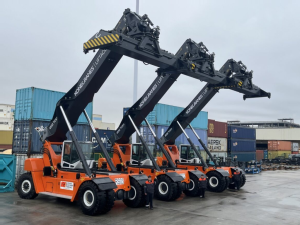The five-day strike has paralyzed the country's port and rail operations and hit exports of metals, fruit and wine to customers in Europe and Asia after nearly two-thirds of Transnet's 54,000-strong workforce joined the labor action.
The strike is the latest protest in the country ahead of next month's soccer World Cup, which is being held in Africa for the first time. There were concerns that the strike could impact imports of equipment for the soccer event.
Wearing red t-shirts, the workers waved placards, one of which said "No 15 percent, no trains, no World Cup". The workers chanted "we are workers, fighting for our rights".
Sholisani Ngwabane, who has worked at Transnet for the past six years, said he would fight to the end. The workers are not being paid while on strike under the 'no work no pay' policy.
"We know we might not get paid for a whole month. We will have to fight until they give us the 15 percent."
The unions want a 15 percent pay rise, above the 11 percent offered by Transnet, fuelling criticism among analysts and the central bank who say a pay rise well above the 5.1 inflation rate would slow South Africa's economic recovery.
Anglo American Plc's iron ore unit in South Africa declared force majeure on shipments, joining other global metal exporters such as Xstrata, which said it could not supply ferrochrome to its customers.
"The impact has been quite severe and we have struggled to move ore," spokesman Tebello Chabana told Reuters.
Chris de Vos, General Secretary at the United Transport and Allied Trade Union (Utatu) said 60 percent of Transnet's port, rail and fuel operations were disrupted.
"There is a lot of import goods that cannot be offloaded," he told Reuters.
Talks Ahead
De Vos said he hoped talks between the unions, Transnet and a mediator later on Friday might resolve the stand-off.
The lowest paid worker at Transnet earns $470 a month, a union official said.
Transnet has said it could discuss options other than a further wage raise to end the strike.
Utatu and the South African Transport and Allied Workers Union (Satawu), the second union on strike at Transnet, represent some 85 percent of Transnet's staff.
Satawu has said it would also strike over pay at passenger transport service Metrorail from Monday, with Utatu expected to join, which could affect millions of commuters.
Transnet does not operate passenger services and does not transport much coal to power plants, but a prolonged strike may hit imports, fuel supplies and exports of iron ore and coal.
Producers of fruit said they were already running out of storage capacity for produce they cannot export.
Wine makers said shipments had stopped due to the strike.
"The impact for us is serious, we can't meet our customers' orders most of whom are in the UK," said James Reid, the General Manager at Constellation Wines South Africa.
The impact on coal and iron ore exports has been limited due to built-up stocks at ports, but the firms have said they would start feeling the crunch if the strike goes beyond this week. South Africa is one of the world's biggest coal exporters, mainly to power plants in Europe and Asia.
Miners said they were running out of storage space and would need to cut production if they cannot ship products to ports. (Reuters)










